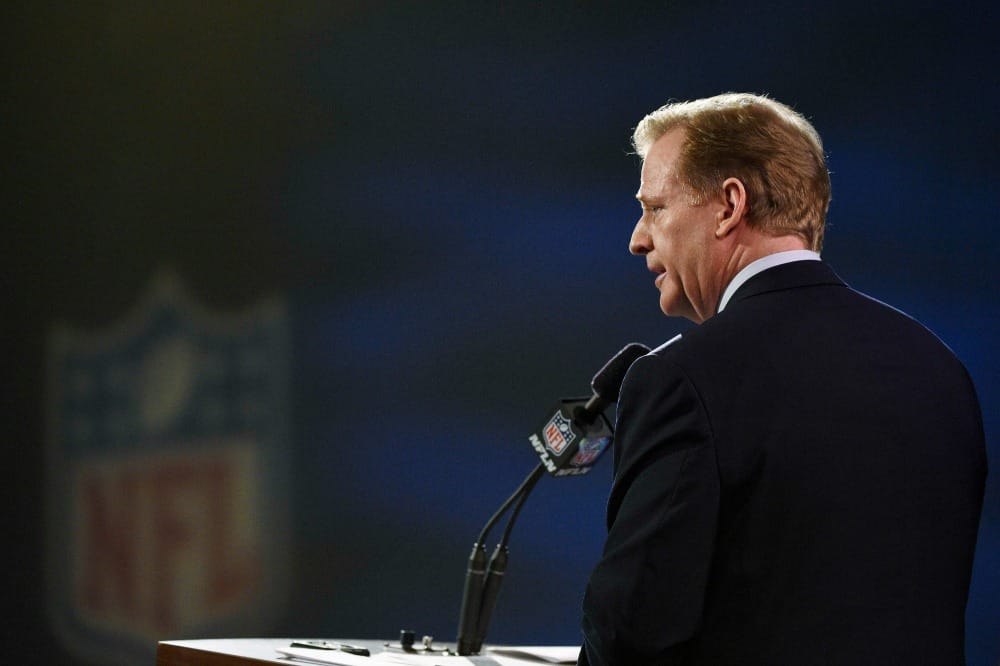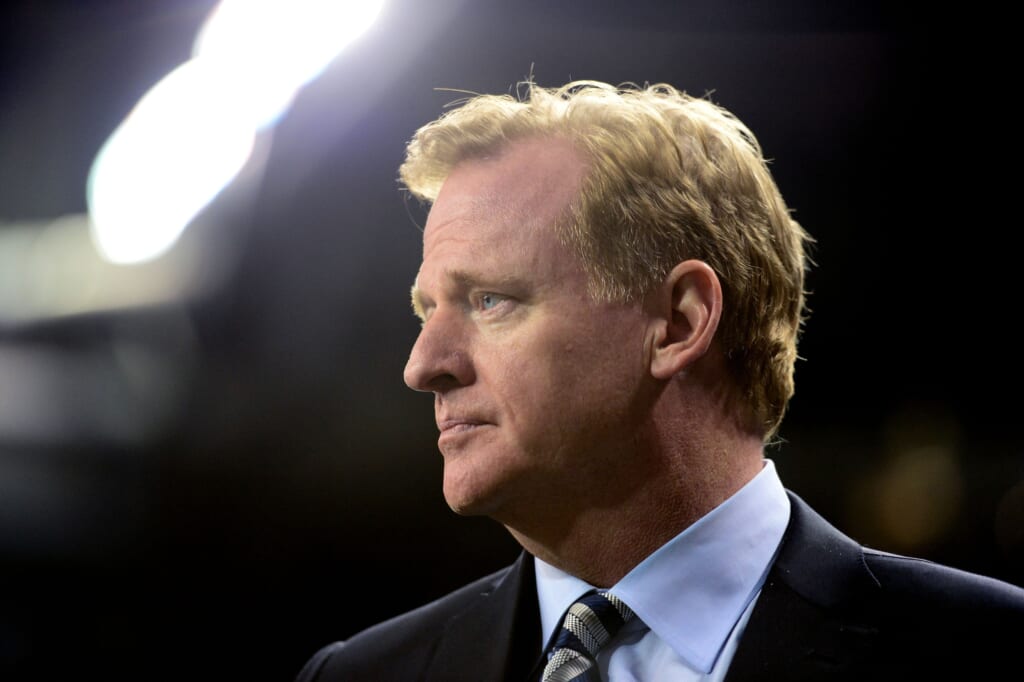
[mks_dropcap style=”rounded” size=”52″ bg_color=”#8224e3″ txt_color=”#ffffff”]F[/mks_dropcap]or a sport that ostensibly values courage above all else, it’s been a pretty cowardly year for Roger Goodell and the National Football League, especially when it comes to domestic violence.
Goodell has had indignity after indignity thrust upon him, from Ray Rice to Greg Hardy to Adrian Peterson. His inability to proactively police the NFL has led to an environment where the supposedly infallible shield is being muddied by the boots of TMZ, the whiplashes of an abusive father, and the protests of a fed up fan base.

To be frank, domestic violence is not a new issue in the NFL. Outside of the aforementioned Rice case, there have been at least 48 cases of DV that have been reported since 2003. No player received more than a three game suspension during this time—and only one footballer, Michael Pittman, got that punishment. Everyone else got two games or less, with 56 percent of offenders getting off scot-free, without even one missed paycheck to show for their crimes.
Considering that in America about 86 percent of domestic violence cases go unreported, there are undoubtedly other players that have attacked their spouses and slipped through the cracks, either by trapping them in a cycle of spousal abuse or intimidating them not go to authorities. The NFL, however, did not even have a formal domestic violence policy on the books until this past season, and only did this as a reactionary move after the Rice incident.

Courtesy of USA Today Images: The NFL has failed to act on this growing epidemic.
Since 2003, the NFL has added many new rules. Goal posts were extended. Teams can now oxymoronically legally tamper with free agents. Players can no longer dunk footballs through the goalposts after touchdowns. All of these things were more important priorities for the NFL than figuring out how to protect the wives and girlfriends of players who are victims of a complex that prides secrecy and single-minded masculine assertion above all else. There was no rule on the books for domestic violence until 2014, and that is extremely problematic.
[mks_pullquote align=”right” width=”300″ size=”24″ bg_color=”#8224e3″ txt_color=”#ffffff”] there have been at least 48 cases of domestic violence that have been reported since 2003[/mks_pullquote]The NFL shies away from any type of concerted effort for change, instead opting to paint the end zones pink for one month a season and focusing on how to make the “game” safer—the game taking precedence over the lives of human beings, of course. This is the greatest form of cowardice, feigning ignorance and a lack of power when, in fact, it could potentially spearhead a rehabilitation system.
This hypothetical program could punish players who attack their significant others, get them the necessary therapy to be rehabilitated, and eventually grant them access back into the league. By recontextualizing everything in the name of the “game,” the NFL does not take advantage of the unique opportunity it has to be a force for social good in the world. It also elevates the game to a level above the basic humanity of the victims, as many of them are disincentivized to share their experiences due to the financial and athletic ramifications of their honesty. Then, the vicious cycle continues.
The potential is there for the NFL to be pilots into a new frontier, offering unique programs and serving as an example to the rest of the country of how to maturely create a domestic violence policing and rehabilitation system. However, in order to make this happen, Roger Goodell has to be willing to look at himself in the mirror and realize that the NFL is more than just a sports league. To say otherwise is foolish, and, potentially, dangerous for women as well.
Photo: USA Today Images